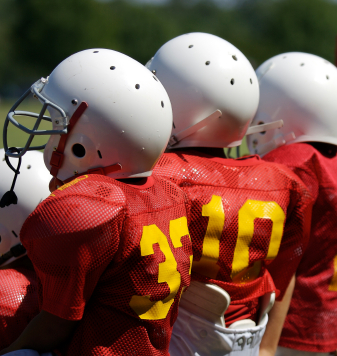Pop Warner Settlement: Seismic Shift In Legal Landscape Or Just A Warning Shot?
2. Do agree with those who view the settlement as effectively holding youth coaches and organizations responsible for serious player injuries?
Professor Abrams:
Time will tell, but I think it is fair to say that the Hill settlement holds tremendous potential for holding organizations or coaches liable in many cases that involve serious injuries. Even if liability does not extend to most or all cases, the prospect that liability would extend to many cases should concern prospective defendants. As I said above, if a case proceeds to trial, some juries may be sympathetic to seriously injured youth leaguers, and some juries might not be.
At the very least, the Hill settlement stands for the propositions that national, state, and local organizations must take meaningful measures to instruct local coaches (volunteer or paid) about injury-minimization, and that organizations must reasonably supervise how local coaches actually apply that instruction. At a minimum, these obligations would mean (1) that national, state and local organizations must produce educational materials such as “Heads Up,” (2) that organizations must assure that local leagues and associations receive these materials and provide them to parents (when their child registers) and coaches (when they volunteer or are otherwise engaged by a program), (3) that coaches must attend safety certification classes, and achieve certification, before they may coach, and (4) that responsible league officials must monitor coaches at practice sessions and games.
In the summary judgment decision in this case, I found it significant that the Pop Warner official conceded that the organization took very few of these safety precautions. To paraphrase House Speaker Tip O’Neill, “all safety is local.” Safety rules may be formulated at the national or state levels, but they mean little unless they are actually applied and enforced at the local level.
Does the Hill case mean that organizations and coaches are responsible for serious injuries? Time will tell, but I don’t think that the liability will be automatic. Even with the most reasonable safety measures, injuries happen, particularly in contact and collision sports such as football. Fortunately, most of these injuries are not as serious as the one Donnovan Hill suffered. Meaningful safety measures provide no absolute guarantees against injury. But the more safety-prevention measures that authorities take and apply, the stronger the defendants’ position would be in settlement negotiations or at trial.
Every state now has enacted concussion safety legislation (so-called Lystedt laws) applying to interscholastic sports, though only about half the states extend such application to youth leagues that use public facilities. As a minimum, authorities must heed this legislation, because it would be negligence not to. Such legislation would not have helped Donnovan Hill, because California’s version of the Lydstedt Law only applies to interscholastic sports.
Commissioner Collins:
Well, the settlement will certainly make Pop Warner be more aggressive in requiring its coaches to be trained. It’s not clear whether the settlement will impact other organizations. Remember, the Hill settlement doesn’t operate in a vacuum. Every state has high school concussion standards, an increasing number of states and organizations, including Pop Warner, regulate football contact, and high schools are adding more and more coaching education and training courses, not just in football but in a whole lot of sports. How lawsuits and settlements add to the current state-mandated training requirements and regulations will only be determined over a long period of time. One settlement and its aftermath isn’t likely to give us a full answer.
Attorney Goldberger:
No. I don’t believe that the settlement should be characterized as “holding responsible” anyone for anything. The settlement is simply a way to end a lawsuit, with each party agreeing to a result without admitting liability.
As far as “responsibility” for injuries, I think it’s not “the settlement.” Once a claim is asserted, youth coaches and organization officers sometimes begin to appreciate the cost of “responsibility” for serious player injuries in that time, effort and money is expended to defend the claim — long before any settlement or verdict is effectuated.



